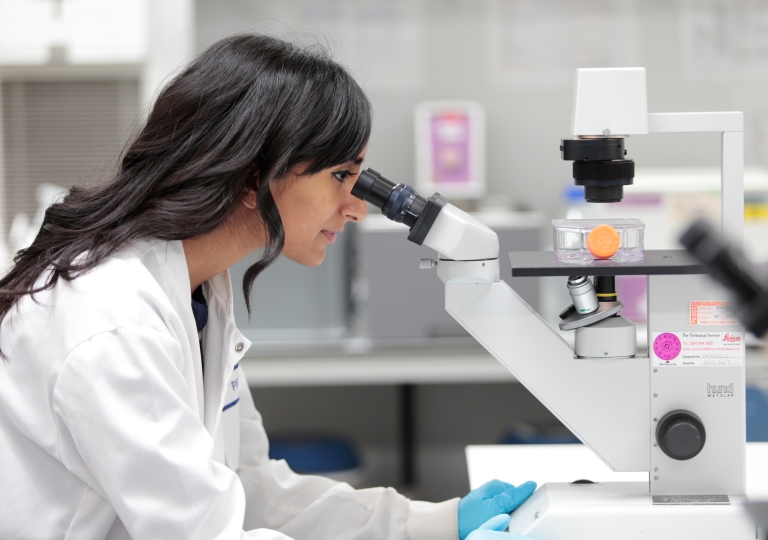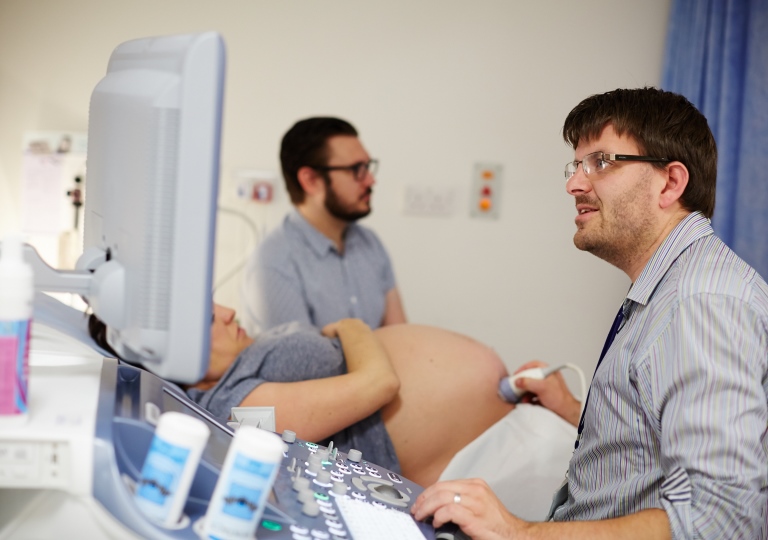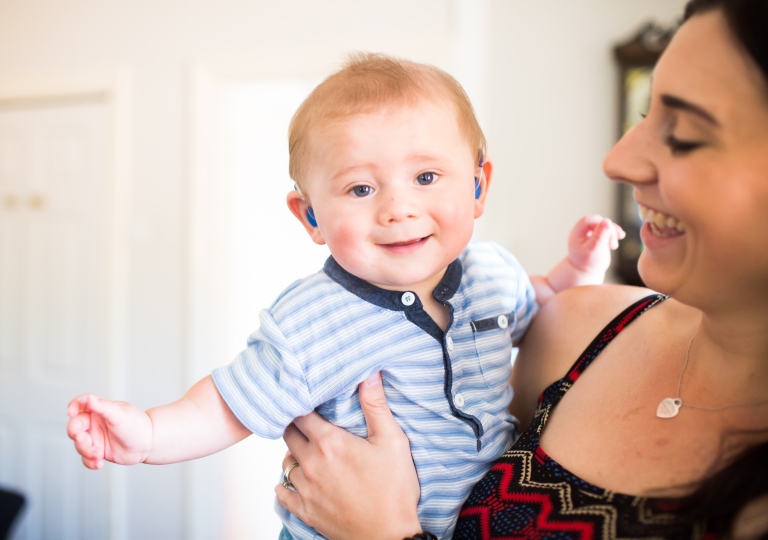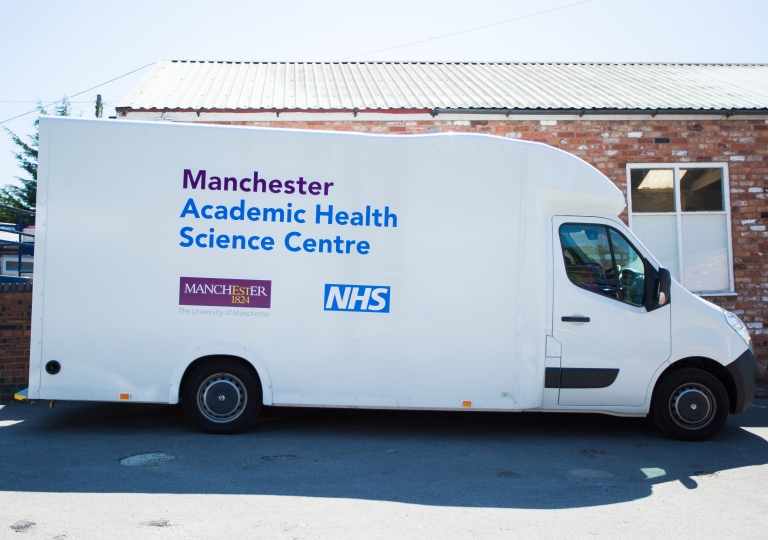In recent decades we’ve made huge strides in addressing some of the world’s biggest healthcare problems. But we still face some big challenges, and at Manchester, we’re tackling them head on.
25% of UK hospital beds are occupied by people with #dementia Share on X Cancer patients are more likely to survive than ever before thanks to research Share on X At Manchester, our research into #stillbirth is saving lives. But we need to do more Share on XTake cancer, for example. It’s now estimated that one in two of us will get some form of cancer in our lifetime. But even though cancer is becoming more common, you are more likely than ever to survive the disease. Just 40 years ago, survival rates were just 24%. Now, 50% of people with cancer will survive.
Heart disease tells a similar story. While seven million people in the UK are currently living with some form of Cardiovascular Disease (CVD), the annual number of deaths has been halved in the last 50 years. That said, a staggering 160,000 people in the UK die every year from CVD, so there’s still much more we need to do.
Dementia is growing at an alarming rate. Currently, about 850,000 people in the UK are living with dementia. That is expected to rise to one million by 2025, and to two million by 2050. At least 25% of UK hospital beds are occupied by people with dementia, and yet only 2% of charity funding into medical research goes to dementia.
The problems are vast, but as improvements in cancer and CVD survival show, the potential impact of research breakthroughs are huge. At Manchester, we are committed to making these breakthroughs, and have researchers working on all the biggest healthcare problems we face today.
However, we recognise that research by itself is not enough. Generating knowledge is just one side of the coin. Once the lab work has been done, and potential solutions found, it is vital that we use it to benefit patients. And that’s what guides our approach to healthcare challenges. In fact, our researchers work side-by-side with medical professionals to ensure that the research they generate can start helping patients as quickly as possible.
Through our research, we’re addressing a huge range of health problems, and donations are helping us along the way.
Perfectly placed to fight cancer

Cancer is one of the biggest healthcare challenges we face today and in Manchester we are perfectly positioned to tackle it head on.
We have a large and diverse population, with a higher than average incidence of most cancers. This means we can research all kinds of cancers in all kinds of people, and where we’re trialling new treatments, we have a better idea of whether or not they will work elsewhere.
But it’s not only our demographic that makes Manchester the ideal place to conduct cancer research. The close collaboration between the University and neighbouring NHS trusts and hospitals creates a seamless journey from the lab bench to the patient’s bedside.
We are at the cutting-edge of cancer research. Our work in cancer biomarkers and personalised medicine is taking us close to a future where every patient receives bespoke treatment that targets their specific cancer. This will not only increase survival rates, it will also decrease unnecessary side effects that from more traditional forms of treatment. Read more about how we’re fighting cancer.
Ending the pain of stillbirth

One in 220 babies in the UK is stillborn, making it 15 times more common than cot death. Classed as any death of an unborn baby after 24 weeks, having a stillborn child is as emotionally devastating for parents and families as any other loss of a child.
Despite the huge pain and suffering caused, stillbirth remains a largely underfunded and under-researched area. For example, despite being responsible for approximately the same number of deaths each year, there are over 10 times more research publications about ovarian cancer than stillbirth.
Even compared to other pregnancy complications such as preeclampsia and preterm birth, stillbirth is still hugely under-researched.
At Manchester we’re hoping to change this, and we cannot do it without donations. For problems like stillbirth, where very little is known, donations are vital. They can fund initial research which, if successful, can be used to apply for research grants for large, wider-scale projects.
Already, a research project at Manchester that was kick-started by donations has proven a link between reduced fetal movement and stillbirth, and is saving babies’ lives all across the country.
But more needs to be done. Manchester is home to the only dedicated stillbirth research centre in the UK, and our goal is to halve the number of preventable stillbirths by 2020. Find out more about our research into stillbirth and watch our short documentary, A Legacy for Shoshana.
Helping babies with hearing loss

To take a very specific research project funded by donations, look at our unique audiology van.
When a hearing aid is fitted to a baby, it is not always clear whether or not it’s working. This means frequent hearing tests are crucial in order to ensure the baby is able to hear properly during early development.
Our audiology research van, funded by donations from the Marston Family Foundation, is fully kitted out with all the equipment necessary to perform these hearing tests.

As the van is mobile and able to travel to patient’s houses, rather than making them come into hospital, it makes it much easier to perform hearing tests on children, and reduces stress on parents. Without the burden of parents needing to bring their children into hospital, it also makes it much easier for patients to be recruited for research studies. Read Marsha’s story about how the audiology research van is helping her son Logan.
We can do more
These are just a small selection of the countless areas where donations are helping us create more healthy futures. Your donations could help fund vital research and tackle some of the biggest health challenges we face today. With your help, we can find new and better treatments for a whole range of problems, helping people to live healthier and longer.

